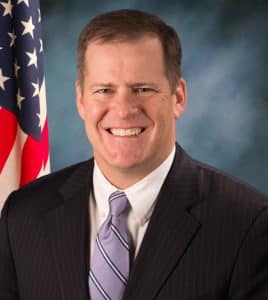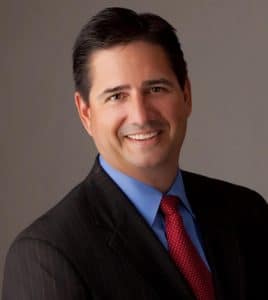Work to be done on governor’s budget proposal

State Sen. Paul Schimpf (R-Waterloo)

State Rep. Jerry Costello (D-Sparta)
Republican Governor Bruce Rauner proposed a state budget last Wednesday, calling for pension reform he says would result in a $1 billion tax break.
“Let’s face it. For middle class wage earners and young mobile workers, the pension crisis is not about the politics that are played in Springfield,” he said during his budget address. “It’s about how much money we are taking out of their pockets. The people of Illinois are taxed out.”
Rauner’s suggested change to the state employee pension system would call for pension holders to choose between different diminishments to their retirement benefits. Additionally, Rauner said he would like to see school districts begin sharing the cost of their pensions.
His proposal would include phasing in the cost sharing in 25 percent increments per year over the next four years.
In response to the idea, State Sen. Paul Schimpf (R-Waterloo) said he was concerned with how it would force school districts to raise property taxes.
State Rep. Jerry Costello (D-Sparta) echoed Schimpf’s concerns.
“What gets me is that, on the one hand, he says we need to be lowering property taxes. But then on the other hand, he asks the schools to pick up pension costs,” Costello said. “You can’t have those two things going together.”
As for implementing Rauner’s changes to state employees’ pensions, Schimpf said he does not see the proposal as constitutional and would not support any such measure.
The Illinois Supreme Court ruled in 2015 that the state’s 2013 pension law cutting benefits for those who served the shortest time and earned the highest salaries was unconstitutional.
“At the end of the day, the Supreme Court has said we cannot reduce benefits,” Costello said when asked how he felt about the idea.
On the other hand, Costello said some sort of pension reform must take place in Illinois. He said a more feasible option would include bonding out a portion of the pension debt to capture a lower interest rate.
“I do think it would be interesting to bond out and see what kind of money we can save while interest rates are still at this level,” he said.
In June 2017, the Illinois Policy Institute listed Illinois’ pension debt as exceeding $250 billion. Schimpf said digging Illinois out of such a hole will require major economic reforms.
“Today’s budget proposal should be a wake-up call to anyone who thought we could achieve fiscal stability by simply raising taxes,” said Schimpf. “The increased infrastructure and education spending that Illinois needs requires economic growth to generate the necessary funding.
“I hope the General Assembly will not repeat last year’s mistakes. This spring we need a budget that is truly balanced, accompanied by pro-growth reforms.”
Schimpf added that the governor’s proposal is a step in the right direction with continued negotiations.
“The governor’s proposal is balanced. And I’m gratified because we haven’t had that since 2001,” he said. “That being said, it is only a proposal. There is going to be stuff that needs to be looked at.”
One such item Schimpf said he would like to see changed with the governor’s budget is the proposal to give $500 million to the University of Illinois for its Discovery Partners Institute in Chicago.
“I strongly disagree with that. I would rather we invest it in something like social services,” he said.
From Costello’s standpoint, the governor’s budget only becomes balanced with the passage of accompanying legislation, leading to the savings Rauner has predicted. This includes the savings that only happen from passing unconstitutional pension reform.
“Here’s the scenario: he bakes in a lot of numbers that rely on other things in order to balance the budget. If you look at it, I don’t see passing the budget the way he’s proposing it,” he said.
Rauner referred to his budget proposal as a stepping stone to achieving bipartisan financial reform.
“It is a framework designed to spark a constructive dialogue on the steps we need to take to resolve the state’s financial issues,” he said.
Additionally, he called out last year’s budget and income tax increase as creating a $2 billion budget deficit. Rauner attempted to veto the current budget but was overridden.
“This sort of budget shortfall underscores the urgency of our circumstances,” he said.
Rauner is facing re-election this fall and is opposed by Rep. Jeanne Ives of Wheaton in the March 20 Republican primary.






